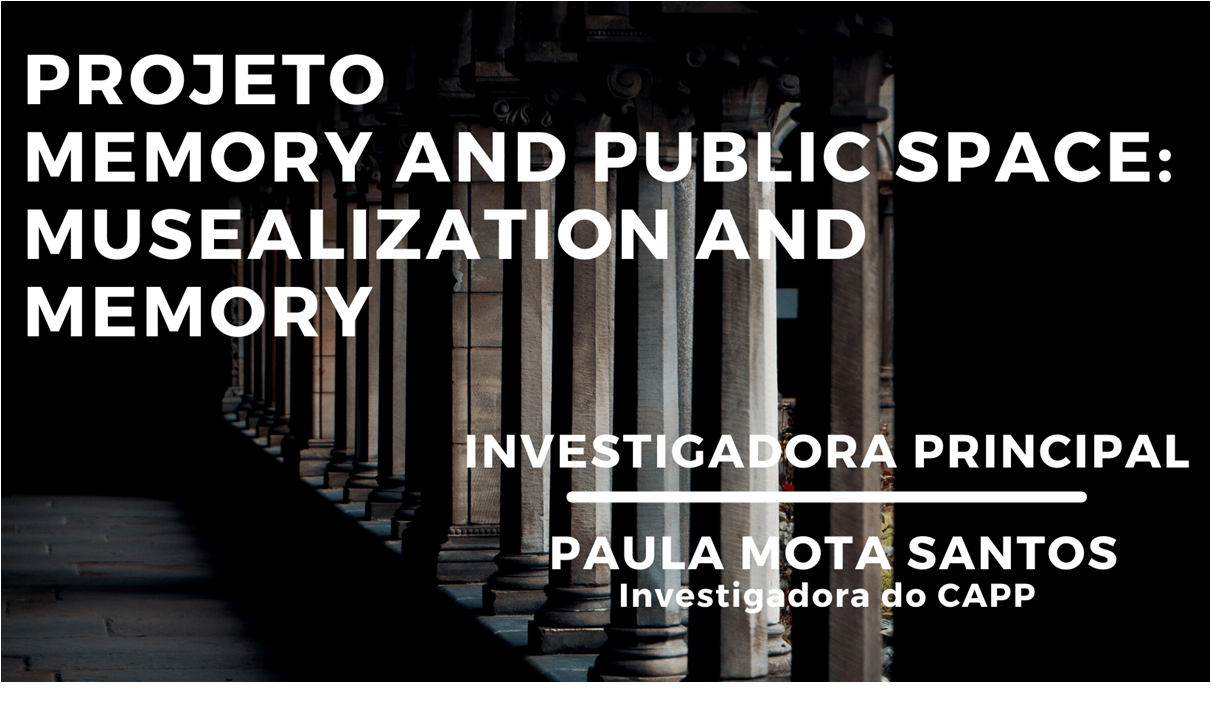Project Memory and Public Space
July 12th, 2021
CAPP researcher Paula Mota Santos is the leading researcher of the project Memory and Public Space.
The year 2020 represents a turning-point as regards the political treatment of slavery heritage, which is illustrated by the EU Parliament’s call to label the slave trade as “crime against humanity” (June 19, 2020). While memorial practices (commemorations, monuments, archiving and image recordings, productions of conflicting, public narratives of the past) are a growing aspect of cultural life in contemporary societies, memories of slavery are more divisive than ever. The toppling of statues, originally conceived as commemorations of contributions made by individuals whose wealth came mostly from the slave trade, is a case in point.
As such, this is a project that approaches the notion of heritage through a cultural focus on the construction, representation and memorialisation of historical enslavement (i.e., from the Portuguese colonial period) in present day Portugal. The project will have two main focuses: the archaeological finds of the so-called slave cemetery, in Lagos, and the issues related to the creation of a memorial to slavery, in Lisbon (proposal presented and approved by the 2017 participatory budget)
It is a project with transnational and transcultural connections through other partner institutions addressing issues of memory, narratives and objects relating to historical slavery, including divisions and controversies raised in the present. Particular attention will be paid to issues of the visibility/invisibility of enslavement in the public sphere as well to affect and emotion as related to representation and to issues of ownership and/or repatriation policies of slavery-related memory-items kept in Europe – and on how these matter play in the public space (namely museums, memorials and media).
The partner institutions are:
- Le Mans University, Le Mans, France
- University of Bergen, Bergen, Norway
- University of Amsterdam, Amsterdam The Netherlands
- Museum of London Archaeology, London, The United Kingdom
On this subject, see the issue published in the scientific journal Museum Worlds, organized by CAPP researcher Paula Mota Santos and Hugo DeBlock.



